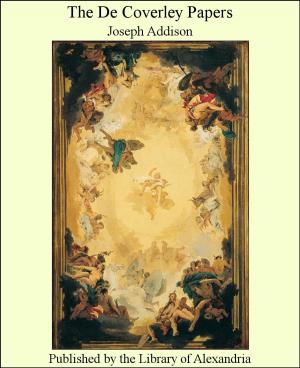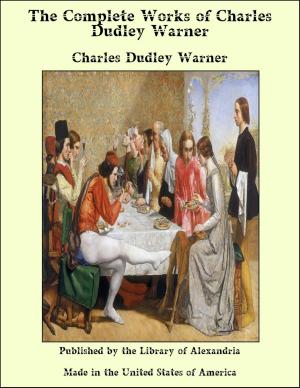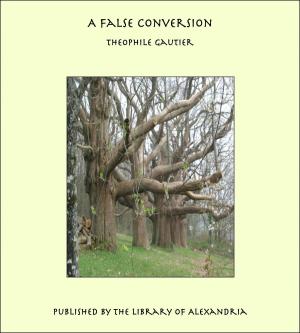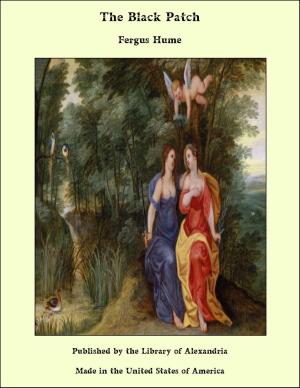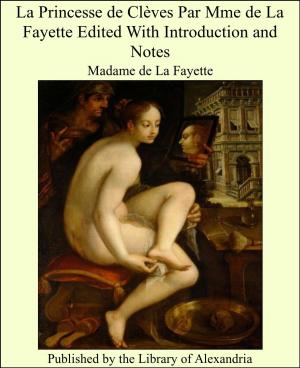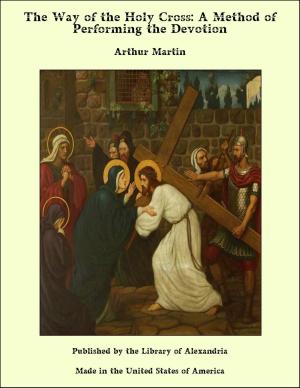The Beginnings of New England or the Puritan Theocracy in Its Relations to Civil and Religious Liberty
Nonfiction, Religion & Spirituality, New Age, History, Fiction & Literature| Author: | John Fiske | ISBN: | 9781465511478 |
| Publisher: | Library of Alexandria | Publication: | March 8, 2015 |
| Imprint: | Language: | English |
| Author: | John Fiske |
| ISBN: | 9781465511478 |
| Publisher: | Library of Alexandria |
| Publication: | March 8, 2015 |
| Imprint: | |
| Language: | English |
This book contains the substance of the lectures originally given at the Washington University, St. Louis, in May, 1887, in the course of my annual visit to that institution as University Professor of American History. The lectures were repeated in the following month of June at Portland, Oregon, and since then either the whole course, or one or more of the lectures, have been given in Boston, Newton, Milton, Chelsea, New Bedford, Lowell, Worcester, Springfield, and Pittsfield, Mass.; Farmington, Middletown, and Stamford, Conn.; New York, Brooklyn, and Tarrytown, N.Y.; Philadelphia and Ogontz, Pa.; Wilmington, Del.; Chicago, 111.; San Francisco and Oakland, Cal. In this sketch of the circumstances which attended the settlement of New England, I have purposely omitted many details which in a formal history of that period would need to be included. It has been my aim to give the outline of such a narrative as to indicate the principles at work in the history of New England down to the Revolution of 1689. When I was writing the lectures I had just been reading, with much interest, the work of my former pupil, Mr. Brooks Adams, entitled "The Emancipation of Massachusetts." With the specific conclusions set forth in that book I found myself often agreeing, but it seemed to me that the general aspect of the case would be considerably modified and perhaps somewhat more adequately presented by enlarging the field of view. In forming historical judgments a great deal depends upon our perspective. Out of the very imperfect human nature which is so slowly and painfully casting off the original sin of its inheritance from primeval savagery, it is scarcely possible in any age to get a result which will look quite satisfactory to the men of a riper and more enlightened age. Fortunately we can learn something from the stumblings of our forefathers, and a good many things seem quite clear to us to-day which two centuries ago were only beginning to be dimly discerned by a few of the keenest and boldest spirits. The faults of the Puritan theocracy, which found its most complete development in Massachusetts, are so glaring that it is idle to seek to palliate them or to explain them away. But if we would really understand what was going on in the Puritan world of the seventeenth century, and how a better state of things has grown out of it, we must endeavour to distinguish and define the elements of wholesome strength in that theocracy no less than its elements of crudity and weakness. The first chapter, on "The Roman Idea and the English Idea," contains a somewhat more developed statement of the points briefly indicated in the thirteenth section (pp. 85-95) of "The Destiny of Man." As all of the present book, except the first chapter, was written here under the shadow of the Washington University, I take pleasure in dating it from this charming and hospitable city where I have passed some of the most delightful hours of my life
This book contains the substance of the lectures originally given at the Washington University, St. Louis, in May, 1887, in the course of my annual visit to that institution as University Professor of American History. The lectures were repeated in the following month of June at Portland, Oregon, and since then either the whole course, or one or more of the lectures, have been given in Boston, Newton, Milton, Chelsea, New Bedford, Lowell, Worcester, Springfield, and Pittsfield, Mass.; Farmington, Middletown, and Stamford, Conn.; New York, Brooklyn, and Tarrytown, N.Y.; Philadelphia and Ogontz, Pa.; Wilmington, Del.; Chicago, 111.; San Francisco and Oakland, Cal. In this sketch of the circumstances which attended the settlement of New England, I have purposely omitted many details which in a formal history of that period would need to be included. It has been my aim to give the outline of such a narrative as to indicate the principles at work in the history of New England down to the Revolution of 1689. When I was writing the lectures I had just been reading, with much interest, the work of my former pupil, Mr. Brooks Adams, entitled "The Emancipation of Massachusetts." With the specific conclusions set forth in that book I found myself often agreeing, but it seemed to me that the general aspect of the case would be considerably modified and perhaps somewhat more adequately presented by enlarging the field of view. In forming historical judgments a great deal depends upon our perspective. Out of the very imperfect human nature which is so slowly and painfully casting off the original sin of its inheritance from primeval savagery, it is scarcely possible in any age to get a result which will look quite satisfactory to the men of a riper and more enlightened age. Fortunately we can learn something from the stumblings of our forefathers, and a good many things seem quite clear to us to-day which two centuries ago were only beginning to be dimly discerned by a few of the keenest and boldest spirits. The faults of the Puritan theocracy, which found its most complete development in Massachusetts, are so glaring that it is idle to seek to palliate them or to explain them away. But if we would really understand what was going on in the Puritan world of the seventeenth century, and how a better state of things has grown out of it, we must endeavour to distinguish and define the elements of wholesome strength in that theocracy no less than its elements of crudity and weakness. The first chapter, on "The Roman Idea and the English Idea," contains a somewhat more developed statement of the points briefly indicated in the thirteenth section (pp. 85-95) of "The Destiny of Man." As all of the present book, except the first chapter, was written here under the shadow of the Washington University, I take pleasure in dating it from this charming and hospitable city where I have passed some of the most delightful hours of my life

